Confused about your roof warranty? A roof warranty can save you from future repair costs. It generally covers defective materials and shoddy installation. This article will explain the different types of roof warranties, their coverage duration, and how transferable they are.
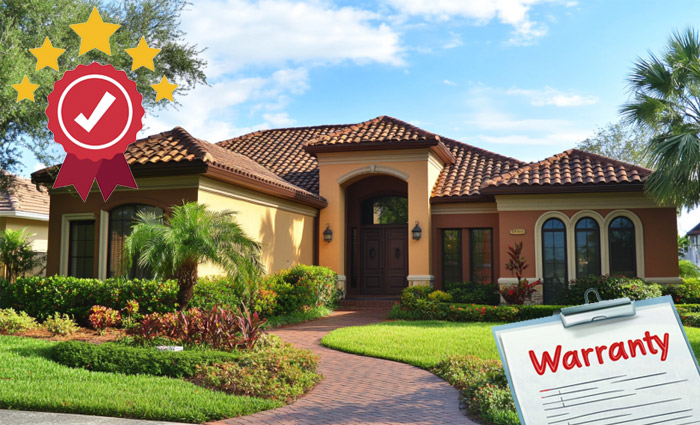
Key Takeaways
- Roof warranties protect homeowners from financial losses due to defective materials or installation errors, consisting of manufacturer or contractor warranties.
- Warranties differ in coverage duration, with manufacturer warranties often lasting 20-30 years and contractor workmanship warranties ranging from 2-10 years.
- Transferable roof warranties add value during property sales, but strict guidelines must be followed for transfer, including timely notification and proper documentation.
What is a Roof Warranty?
A roof warranty protects against financial losses from defective materials or installation errors. It is a commitment from the manufacturer or contractor to address specific issues with your roof, providing homeowners peace of mind and minimizing unexpected expenses.
Roof warranties generally fall into two categories: manufacturer warranties and contractor workmanship warranties. Manufacturer warranties assure the quality and durability of roofing materials, while contractor warranties focus on the quality of installation. Combined, they offer comprehensive protection for both roofing warranties and craftsmanship.
Types of Roof Warranties
Roof warranties vary widely, offering different levels of protection. The main types include manufacturer warranties, contractor workmanship warranties, and extended warranties.
Each warranty type serves unique purposes, from covering material defects and installation errors to offering extended coverage for additional peace of mind.
Manufacturer Warranties (Materials)
Manufacturer warranties assure that roofing products perform as advertised, typically covering material defects and failures. For instance, roofing shingles often come with a basic lifetime warranty covering defects for as long as you own your home.
Initially, these warranties often provide full coverage for defective shingles, transitioning to prorated coverage over time. Some manufacturers offer extended warranties, further protecting against installation errors and ensuring coverage of non-prorated materials.
Workmanship Warranties (Contractor)
Contractor workmanship warranties, provided by the roofing contractor, ensure proper roof installation. They cover labor, installation costs, and repairs for damages due to installation errors, guaranteeing the quality of the roofing contractor’s workmanship warranty.
However, these warranties usually exclude issues unrelated to installation workmanship and vary in duration, with some offering lifetime coverage and others lasting only a few years.
Having these warranties in writing, clearly outlining coverage and options for negotiation or extension, is essential.
Extended Warranties (Complete)
Extended warranties provide additional protection beyond standard manufacturer or contractor warranties. Though often available at an extra cost, they cover a broader range of issues, offering homeowners more comprehensive protection, including optional extended warranty coverage.
For instance, companies like Owens Corning offer extended warranties under specific conditions for certain products.
While some homeowners might see extended warranties as unnecessary, they can provide significant peace of mind by offering more extensive coverage than standard policies, often costing up to $3,000, depending on the coverage and provider.
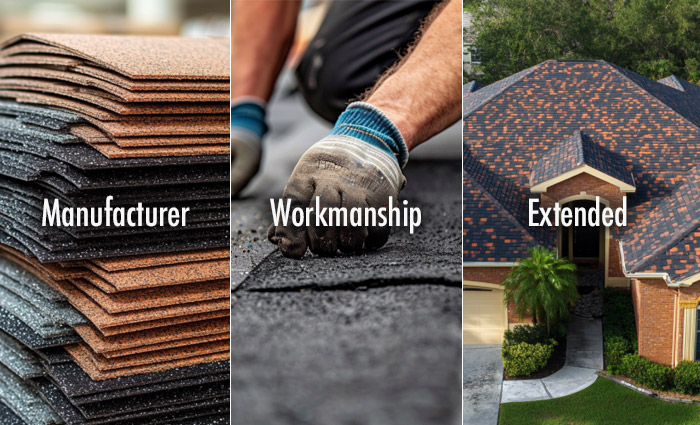
Coverage Details of Roof Warranties
Roof warranties often cover both materials and installation, though specifics vary widely. Standard manufacturer warranties typically cover only defective materials, leaving homeowners responsible for removal and disposal costs.
Fully understanding your warranty coverage, including exclusions and limitations, helps avoid unpleasant surprises.
Material Defects
Manufacturer warranties typically cover material defects, ensuring replacement costs are covered if roofing materials fail due to manufacturing issues. For example, warranties on asphalt shingles often cover wind damage, algae staining, mildew, mold, and tearing.
However, most roofing materials fail due to improper installation rather than inherent defects. This emphasizes the importance of hiring a qualified roofing company to ensure correct installation and maintain the validity of your warranty.
Installation Errors
Installation errors significantly impact warranty coverage. Manufacturer warranties typically do not cover installation errors, but contractor workmanship warranties do. Improper installation can void a manufacturer’s warranty, underlining the importance of correct installation and proper maintenance.
Correct installation techniques are essential to maintain the validity of roof warranties. Homeowners should ensure their contractor follows best practices to prevent issues that could void the warranty.
Exclusions (Severe Weather, Installation, Maintenance)
Exclusions in roof warranties often include damages from severe weather events like hail or heavy snowfall and issues from lack of maintenance. Regular upkeep is necessary to keep your warranty valid.
Manufacturer warranties typically cover only the roof surface and base flashing, excluding leaks from other components. Damages due to improper installation or maintenance are also commonly excluded. Understanding these exclusions helps homeowners know what to expect and how to maintain their roofs properly.
Duration of Roof Warranties
Roof warranty durations can vary widely. Manufacturer warranties for roofing materials typically surpass 25 years, with some extending up to 50 years, depending on factors like the roofing system type and local weather conditions.
Standard Warranty Periods
Roofing material warranties usually range from 25 to 30 years, with some extending up to 50 years. Contractor workmanship warranties can vary widely, lasting from 2 to 10 years, with some extending up to 25 years in unique situations.
Extended Warranty Periods
Extended warranties offer longer coverage periods compared to standard warranties. An extended warranty enhances protection against future roofing issues, providing homeowners greater peace of mind.
Transferability of Roof Warranties
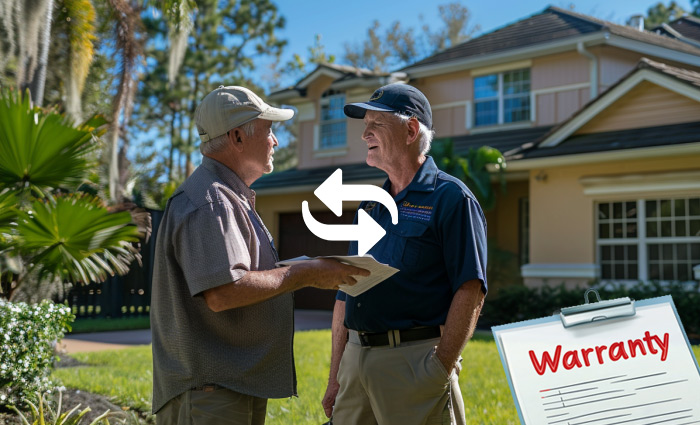
Transferable roof warranties are valuable for homeowners, especially when selling a property. Most manufacturer warranties can be transferred only once, offering flexibility for the new homeowners.
However, if the second owner sells the property, often the warranty may not be transferable again.
Transfer Process
The transfer process requires notifying both the roofing contractor and manufacturer when homeownership changes. This must be done within a specific timeframe after the sale, often requiring documentation like proof of ownership, installation date, and proof of purchase.
Strict guidelines must be followed for a proper warranty transfer. Some manufacturers may charge an administrative fee, and successful transfer depends on knowing and adhering to these guidelines and timeframes.
Benefits of Transferable Warranties
Transferable warranties add significant value during property sales by allowing homeowners to pass warranty rights to new buyers. This feature enhances the property’s appeal and reassures both parties in real estate transactions.
These warranties ensure new homeowners benefit from the previous owner’s warranty protection, offering coverage for any issues that may arise and adding an extra layer of security.
Maintaining Your Roof Warranty
Maintaining your roof warranty is essential for continuous protection. Key steps include regular inspections, proper registration, and working with certified contractors to avoid voiding the warranty.
Regular Inspections
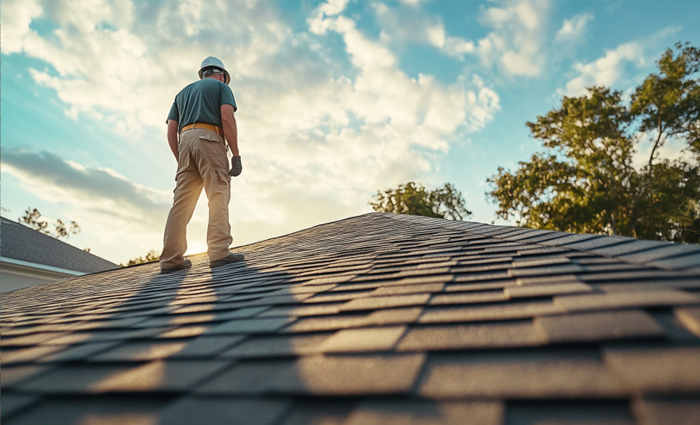
Regular roof inspections help catch potential issues early, maintaining your roof’s longevity and integrity. Identifying problems before they escalate allows for prompt addressing, ensuring your warranty coverage remains intact.
Proper registration of your roof warranty with the manufacturer or contractor is necessary to activate and maintain your coverage. Ensure certified contractors perform all repairs and maintenance to avoid voiding your warranty.
Proper Registration
Registering your roof warranty ensures manufacturers are aware of warranty acceptance. Activation requires registration with the manufacturer or contractor within a set timeframe after purchase. Failing to register correctly could result in losing coverage when filing a claim.
A standard roofing warranty combines manufacturer warranties for materials and contractor warranties for workmanship.
Working with Certified Contractors
To ensure your roof qualifies for extended warranties, homeowners must make sure it is installed by approved certified contractors using complete roofing systems. Only certified contractors can uphold warranty terms during installation or repairs. Using unapproved contractors can void your roof warranty, so working with authorized professionals is essential.
Failure to maintain the roof properly and using unauthorized contractors can void your warranty. Hiring a different contractor or attempting DIY repairs can also void a workmanship warranty.
Select a manufacturer approved and certified contractor for installation to maintain roof warranty coverage, and stay with the original contractor for any changes or repairs to ensure the warranty remains active.
Roof Warranty Summary
Understanding your roof warranty is essential for protecting your home and investment. Roof warranties, whether they cover materials or workmanship, provide peace of mind by ensuring that you are not financially burdened by unexpected roof issues. Manufacturer warranties guarantee the quality of roofing materials, while contractor workmanship warranties assure the quality of the installation. Extended warranties offer additional protection, often covering more than standard policies.
Maintaining your roof warranty involves regular inspections, proper registration, and working with certified contractors. These steps are critical to ensure that your warranty remains valid and effective. Transferable warranties add value to your property and provide reassurance to buyers and new homeowners. By understanding the coverage, duration, and transferability of your roof warranty, you can make informed decisions and protect your home for years to come.
(352) 293-2449
For the original version of this article visit: https://roofersthevillagesfl.com/your-roof-warranty-explained/
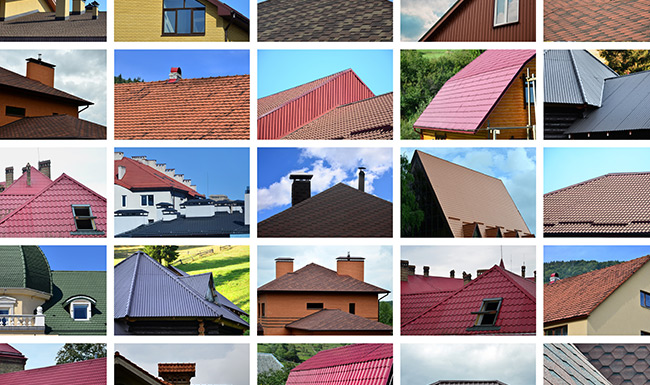
No comments:
Post a Comment
Note: Only a member of this blog may post a comment.